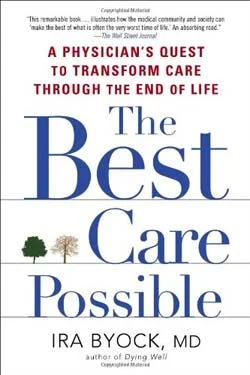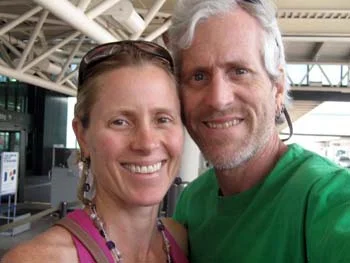Improving Quality of Life
Written by Dr. Kathy Backus.
A very dear friend of mine was diagnosed with esophageal cancer about 18 months ago, he is in his late 40’s. At the same time, three other acquaintances were diagnosed with esophageal cancer. Only my friend, one of the four people is still with us. During this time, I was introduced to the book, The Best Possible Care by Ira Byock MD. This is fantastic book about the emerging specialty field of palliative care in human medicine especially in cancer patients. A study at Dartmouth enrolled 322 patients with advanced cancer receiving standard oncology care into two groups. One group received concurrent palliative care consisting of phone based visits with a nurse who inquired about their symptoms and provided education, coordination of care, and supportive counseling for living with their illness. The other group did not receive this palliative care. The palliative care group reported a significant quality of life and higher mood than the other group and amazingly had 5 1/2 more months of survival.
The amazing part of 5 1/2 months does not seem dramatic until compared to other contributors. In other words, if this increased survival time were attributable to a new chemotherapy treatment for late stage cancer, it would be a nobel prize as that amount of increased survival time has not been achieved in traditional treatment options. This is powerful and clinically significant. This is what veterinarian Sarah Boston discusses as a veterinary oncologist who went through her own thyroid cancer journey and wrote a book about her experience (See article about Sarah here). She didn’t seem to have a palliative care team in the Canadian health care hospital where she received treatments. “the extraordinary, time intensive care offered by veterinarians isn’t always mirrored in human medicine. ”
And that is the take home point. Veterinarians are often more involved and have incorporated palliative care techniques into the standard of care than our human counterparts. This is really what integrative veterinary oncology is all about. Palliative care addressing the spiritual, emotional aspects of cancer in the animal as well as coordinating treatment options and support through the process for the guardian is every much as valuable as the treatments themselves and sometimes more so. This is where animal communication, energy work, flower essences, essential oils and consciously dying coaching can bring deeper healing to the essence of the relationship between the guardian and the beloved animal. Of course the powerful tools of alternative therapies to change the biological terrain in the physical body to allow living a good quality of life with the cancer and sometimes encouraging the cancer to diminish is the other arm of integrative veterinary oncology. Ozone therapy itself can radically help with the main goals to keep the cancer patient eating, keep them as pain free as possible and diminish vomiting and diarrhea. Integrative veterinary oncology is a team approach. We bring the palliative care to the team.
That dear friend of mine has my great admiration and gratitude for being a part of his team. Thank you Orly King!


